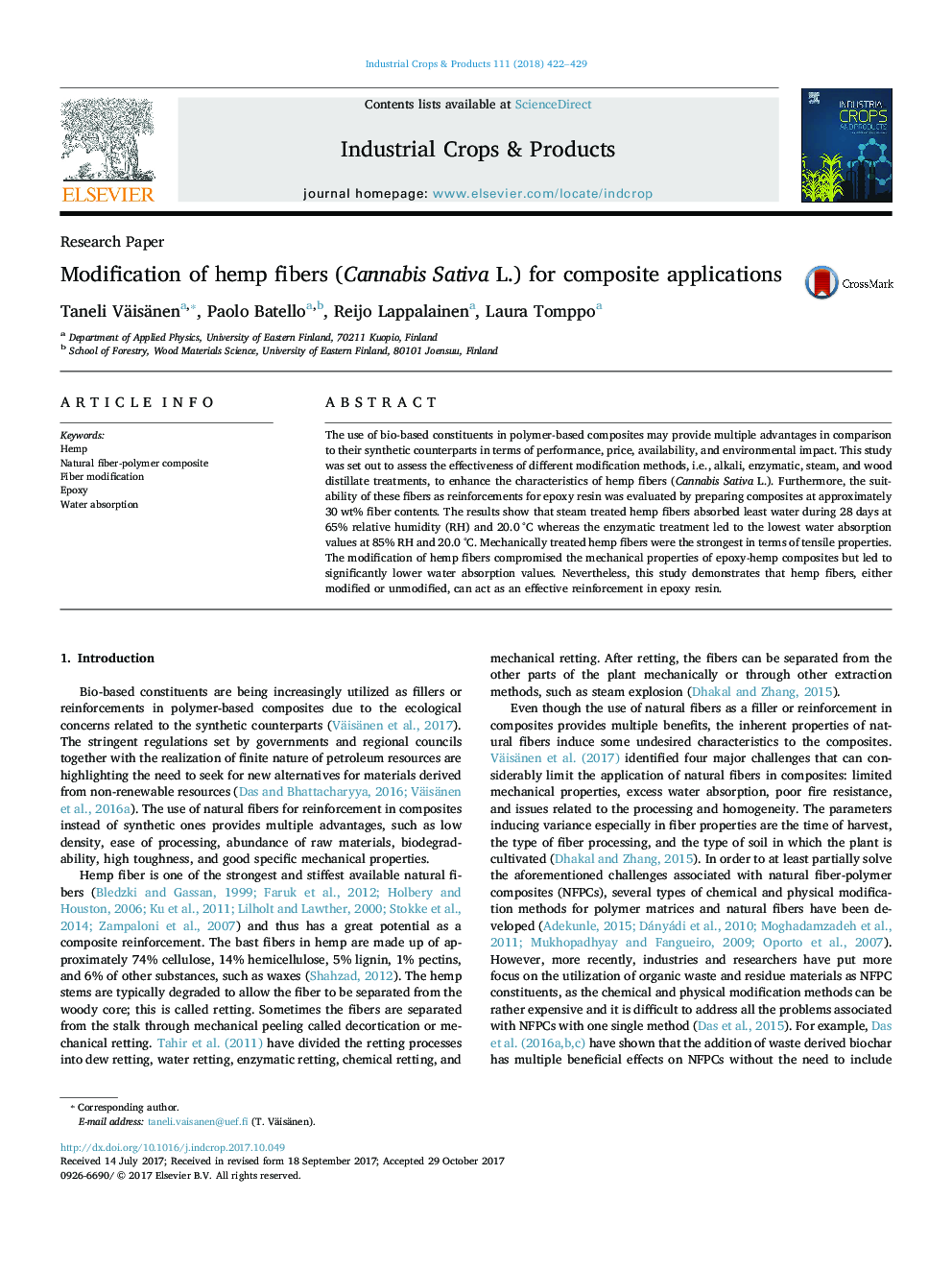| Article ID | Journal | Published Year | Pages | File Type |
|---|---|---|---|---|
| 8880982 | Industrial Crops and Products | 2018 | 8 Pages |
Abstract
The use of bio-based constituents in polymer-based composites may provide multiple advantages in comparison to their synthetic counterparts in terms of performance, price, availability, and environmental impact. This study was set out to assess the effectiveness of different modification methods, i.e., alkali, enzymatic, steam, and wood distillate treatments, to enhance the characteristics of hemp fibers (Cannabis Sativa L.). Furthermore, the suitability of these fibers as reinforcements for epoxy resin was evaluated by preparing composites at approximately 30 wt% fiber contents. The results show that steam treated hemp fibers absorbed least water during 28 days at 65% relative humidity (RH) and 20.0 °C whereas the enzymatic treatment led to the lowest water absorption values at 85% RH and 20.0 °C. Mechanically treated hemp fibers were the strongest in terms of tensile properties. The modification of hemp fibers compromised the mechanical properties of epoxy-hemp composites but led to significantly lower water absorption values. Nevertheless, this study demonstrates that hemp fibers, either modified or unmodified, can act as an effective reinforcement in epoxy resin.
Related Topics
Life Sciences
Agricultural and Biological Sciences
Agronomy and Crop Science
Authors
Taneli Väisänen, Paolo Batello, Reijo Lappalainen, Laura Tomppo,
